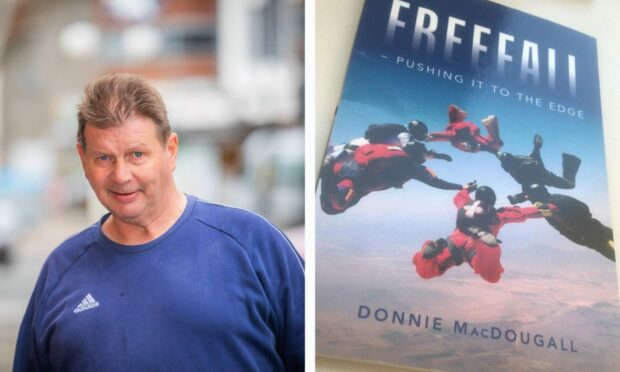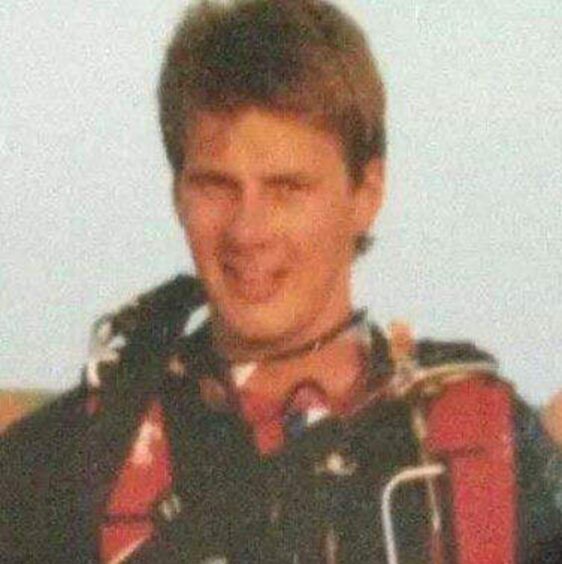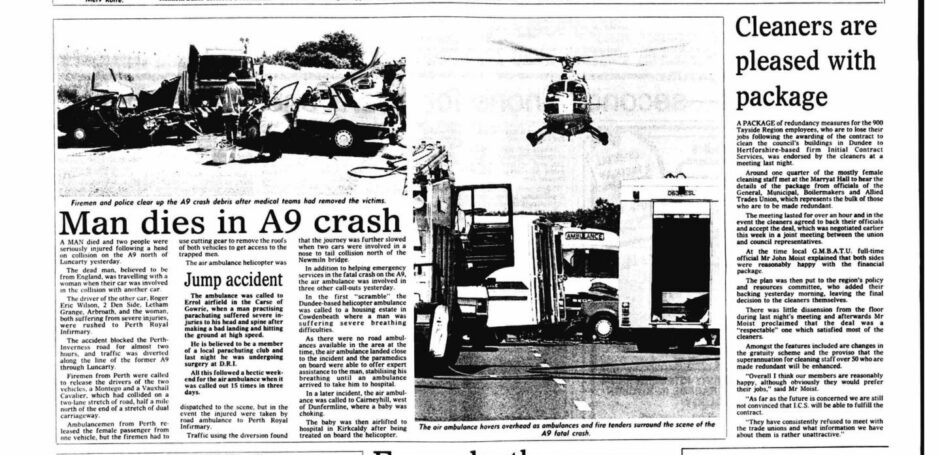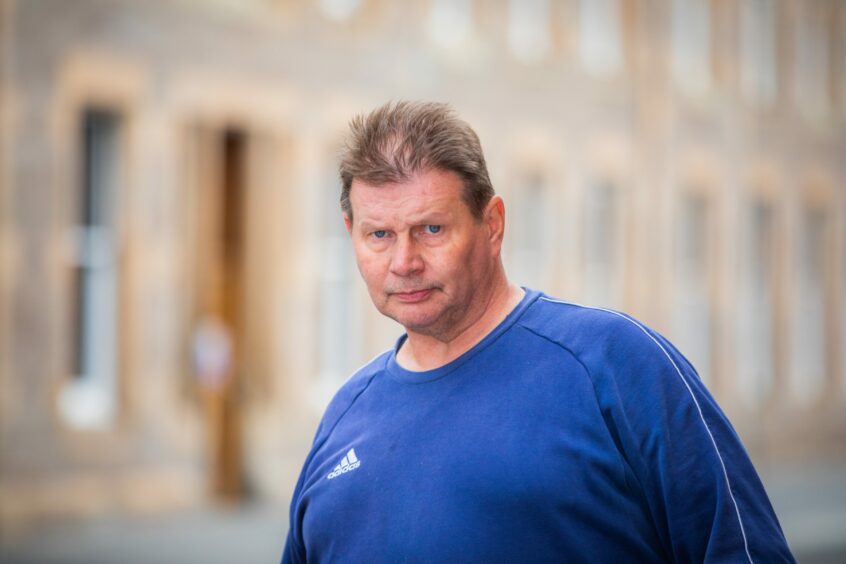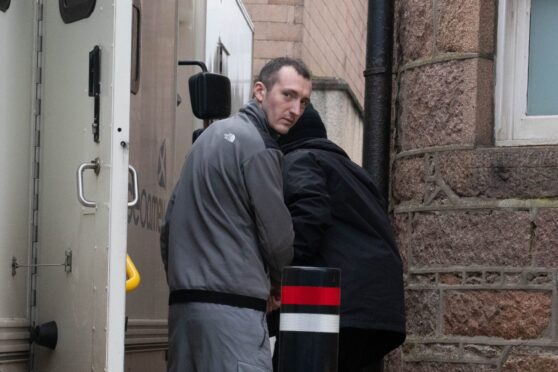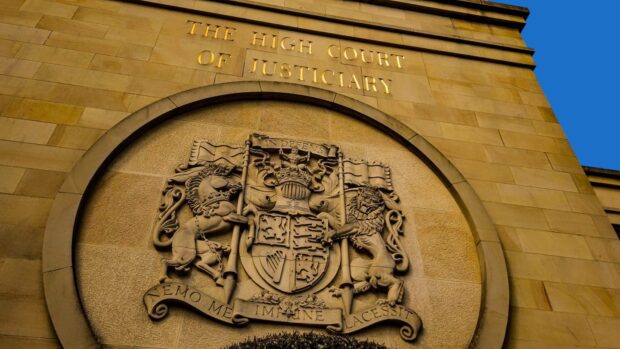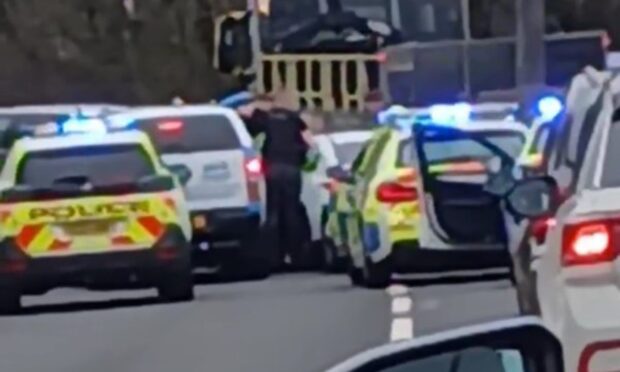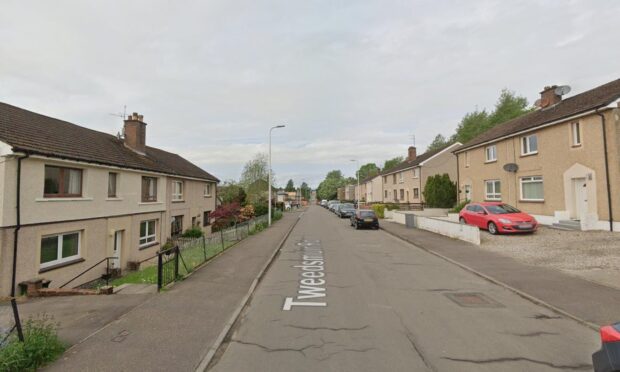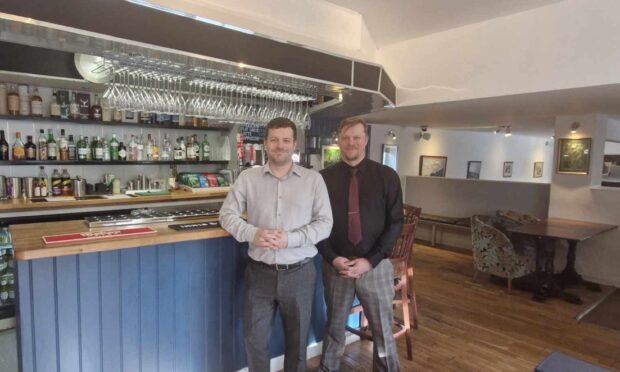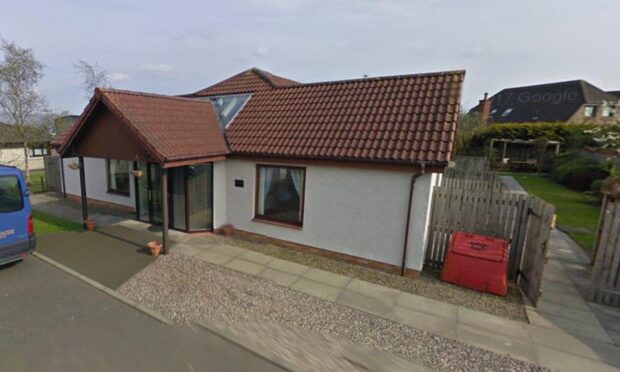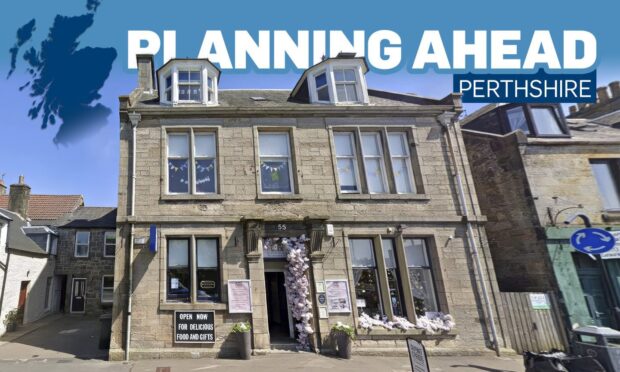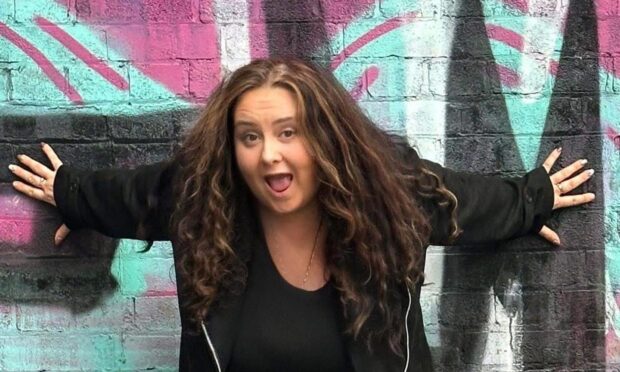A Perth man has published his first book on surviving a horrific skydiving accident that left him in a coma for two months.
On June 22, 1989 Donnie MacDougall took part in a skydive at Errol airfield, a hobby he enjoyed in his spare time.
His next jump was to be his last. Using the wrong sized parachute for his weight saw him smash into the ground at speed and left him with serious injuries.
Donnie, a father of two who was brought up in tiny Perthshire village Gask, said: “I loved skydiving, it’s one of the best sports.
“I love football too but the feeling you get when you skydive is like no other, it’s one of the best in the world.
“About two weeks before [the accident] I went to La Ferte in France to do some skydiving.
“A friend, who had done more than 12,000 jumps, was using this new parachute.
“I wanted to try it out but was recommended not to, it was for people with more experience. I’d only done about 60 jumps by that point.
“The speed it got to, it looked amazing.”
‘I knew I was in big trouble’
Thinking he was ready and despite being three stone over the recommended weight, Donnie, who worked at an open cast mine, used the parachute.
He said: “It was so windy on the day. The wind was blowing towards us and was meant to help slow me down but it didn’t.
“The fall going down was so exhilarating. I remember getting more and more worried the closer to the end I got.
The fall going down was so exhilarating…I was approaching the ground really fast and knew I was in big trouble.
Donnie MacDougall
“I was approaching the ground really fast and knew I was in big trouble.
“I think I was unconscious before I hit the ground.
“A friend who was there said it looked like I hit the ground at about 100mph.”
The air ambulance was called and Donnie rushed to Dundee Royal Infirmary with a list of injures. He was just 24 years old at the time.
The story of his accident was published in several newspapers at the time, including The Courier.
His story has even reached the other side of the pond after an interview with Kate Delaney on the America Tonight radio show.
Donnie, who lives in Perth city centre, ended up with several serious injuries to his spine and head.
He could not walk or talk, was unable to wash, dress or eat independently, and was left partially blind and paralysed down his right side.
He was in a coma for two months but amazingly did not break any bones.
Coma saw Donnie miss daughter’s birth
His ex-wife Marion was heavily pregnant with their second child at the time while their son Mark was only a year old. Donnie woke up from his coma shortly after his daughter Adele was born.
Recovery continued at the former hospital at Bridge of Earn and Donnie stayed there for the next year and a half. He also received treatment from some of the world’s best doctors.
He has since regained his sight and the ability to do all of the things he was told he would lose, including driving.
However he still occasionally feels the effects of the accident.
He still receives visits from carers and gets help from his daughter. He says his grandchildren are also a good source of therapy.
“I remember hearing the doctors telling my ex-wife I would never walk or talk again,” he said.
“They thought I was so severely brain damaged I couldn’t understand them but I could.
‘I have a life again’
“Now I’m able to walk, talk and do all of those things again. I’m very lucky, I have a life again now.
“Everyone can’t believe the recovery I’ve made. I drove back to the ward at the Dundee Royal Infirmary and they all thought I wouldn’t make any improvement after I left. I remember how bad I was.”
Despite what happened Donnie says it has not put him off skydiving but admits that he should have listened to the advice he was given.
His new book Freefall – Pushing It to the Edge details his recovery journey, which he wrote after being encouraged to do so by friends and family.
The book is available online at Amazon, Waterstones, Foyles and through his publisher Xlibris.
